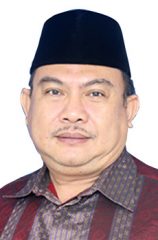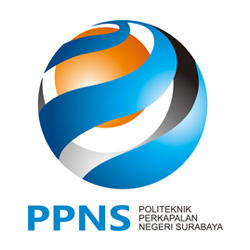In conversation with
Ir. Eko Julianto, M.sc, Mrina
Rector | Shipbuilding Institute of Polytechnic Surabaya

Higher Education Spotlight: In your opinion, what is the meaning of education?
Ir. Eko Julianto: It’s the medium through which we can change and improve people permanently.
What are some of the important milestones in the development of SHIPS, and how would you describe its current identity?
Ir. Eko Julianto: Our motto is ‘SUCCESS’, which stands for: striving for excellence; uncompromised integrity; conquering problem with innovation; constantly discipline; exceeding customer’s expectations; synergistic teamwork; setting down to earth result.
SHIPS is the one and only public polytechnic in Indonesia dealing totally with shipbuilding. There are some polytechnics, for instance, having ocean engineering faculty but it is one among many other fields, like mechanical engineering. All of our programs here deal totally with shipbuilding. We became an independent institution in 2012 so we could take advantage of the polytechnic format, which is specialised for vocational education.
In your time as director of SHIPS, what goals and strategies have you implemented in order to expand and move forward, not only the institution, but also Surabaya with its prominent maritime sector?
Ir. Eko Julianto: Surabaya is the centre of maritime development and the biggest shipyard in Indonesia is located here. The purpose of SHIPS is to support the maritime sector and all supportive industries- obviously ships have many different components.
We are interested in educating people through learning by doing. Yes our filed is about providing skills but we are authorised to conduct education up to a doctorate degree. At the moment the highest level we offer is a bachelor degree, but next year we will be able to offer a master degree in maritime engineering.
Normally, technicians graduate from secondary education at a technological high school and then go to work. On the other hand, engineers go to universities and get full degrees. You can see there is a big gap between their experiences. So we are here to bridge that gap, connecting those two levels of education and develop according to the needs of the industry.
In the coming year we will hopefully change our system at SHIPS from the conventional system into a ‘product-based’ education. This means changing how we educate our students. We will try to educate people through processes that are as similar as possible to those found in real industrial enterprises.
We want to be a ‘teaching factory’. We have to teach people how to build ships. How do we do that? By really building ships! So we must have a real factory, not just showing students videos of ships being built, but learning by doing. Students have to feel the real atmosphere of industry and be able to perform in it.
The benefit of this is that we will be producing ships that meet significant demand from coastal areas in our region. Big ships require big equipment, which is not economically viable for us, but we will be able to sell small to medium sized ships produced at our factory.
How do you identify which industries you will be working with next? How do you wish to expand?
Ir. Eko Julianto: We have an industrial advisory board consisting of related industries, including shipbuilding and all supporting industries. We have an annual meeting, and maintain a very close relationship with them.
We send our students to spend a full semester doing job training in industry. Before they do that, they have to attend a competency assessment, which prepares them for the specific tasks they will be performing during their placement. This way, when they are doing their job training, they are not students anymore because they already have a certificate for their profession.
We have to take care and do the projects very carefully. Safety is of course our priority, because we are dealing with mechanical and electrical components. So we provide safety training here before students go for their job training.
What is the main research that you are currently performing, and how are you generating profit to make SHIPS self-sustainable?
Ir. Eko Julianto: I do my best to change my people’s priorities from conventional matters in teaching and learning into the teaching factory mindset. All of our activities must produce a benefit. If you want to do research that produces a real applicable result, not just something on paper, we have to build real things. That is the teaching factory. Then you can improve the product.
Innovation doesn’t always mean a brand new invention. We start with the small things first. Smaller doesn’t necessarily mean simple. Before we establish the teaching factory, we have collaborated with small enterprises. It’s impossible to jump right into producing a whole ship, we need to work on these components first. Now we will concentrate more in how to develop, how to make it efficient, how to do more research. I think this process will be easier if we have our own facilities, and don’t have to depend on industry to do it. Hopefully we can have the full system in place in the next academic year.
How can we explore the true value of the ‘blue economy’ by applying modern processes to enhance national development? What new products are you working on that will enhance the value that you are creating?
Ir. Eko Julianto: The government have already focused their efforts into food, renewable energy, and connectivity. The key is how to connect the islands all over Indonesia- we need ships, big and small. People in coastal areas need small ships, especially fishermen. On the outer islands, our resources are, allegedly, being stolen by other countries. They are a great country to collaborate with, but it can be difficult to make it happen on the right terms.
Speaking of international issues, what are the areas and countries with which you would like to establish relationships with? Do you think that the AEC has opened doors for SHIPS?
Ir. Eko Julianto: Yes. You have to cooperate, not only with Asean, but all Asian countries. For instance, last year we had a welding conference at the Asian Welding Federation. I attended as head of the East Java branch of the Indonesian Welding Association. I am also the supervisor of the safety engineering society. We have already collaborated with many universities in Korea, Taiwan, France, Malaysia, Canada, German, and etc.
For future collaborations we will be focusing on Asian countries, with particular attention paid to Korea and China.
We also intend to send all our lecturers to get international certificate for specific roles, like pipe engineer or crane inspector. This is all part of the learning by doing philosophy- if we want to teach welding, for example, we need to have teaching staff who can and will weld competently. A few of our lecturers already have national certification and the government will provide finance in the coming year to promote them to international certificate.
What can Surabaya do to position itself as an education destination, and how do you feel you are contributing to that?
Ir. Eko Julianto: You have to think, ‘What kind of education do I want for my children?’ The best, of course. It is the culture of our people to be very demanding with titles. But now there are more and more educated individuals, and people are realising that a title is only a word.
The most important thing is, as I said before, education is the medium through which we change people permanently. What do you want to be? If you want to be an engineer or medical doctor, go to the school for those. If you want to go into industry and work, please, go to a polytechnic. You will have your first job even before graduation.
What is the proudest moment from your time at SHIPS and your career in the maritime industry as a whole?
Ir. Eko Julianto: The fact that I have succeeded in changing our system at SHIPS from the old paradigm of conventional education to the new paradigm of the teaching factory. We’re in the position that everyone can get involved. I think we should take advantage of the value that this can bring. We will keep learning.
